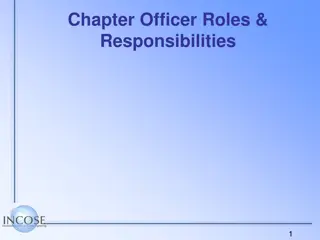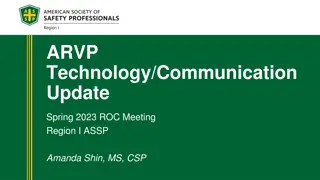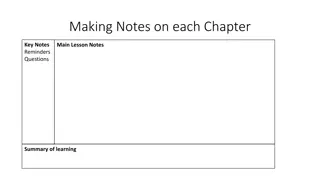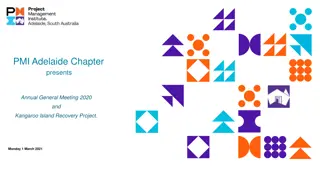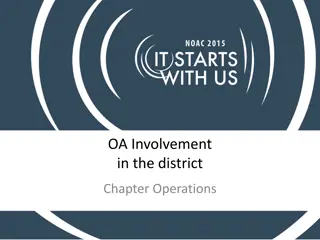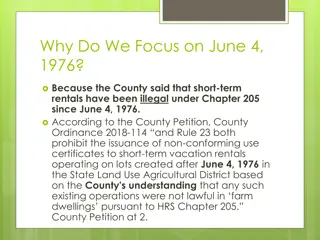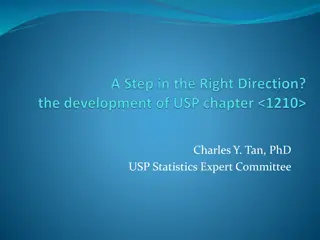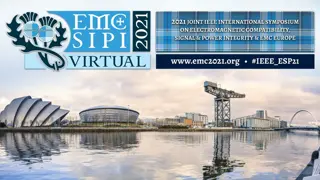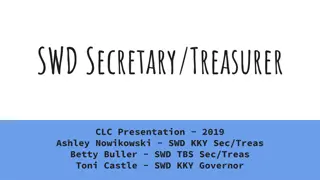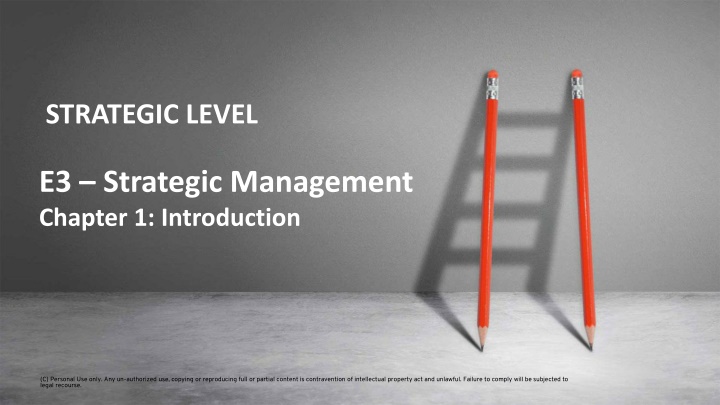
Finance Competencies and Strategic Management
Explore the essential competencies and skills required for financial professionals, alongside strategic management concepts for organizational success. Learn about the CIMA and CGMA frameworks, as well as practical experience assessments in the finance field.
Download Presentation

Please find below an Image/Link to download the presentation.
The content on the website is provided AS IS for your information and personal use only. It may not be sold, licensed, or shared on other websites without obtaining consent from the author. If you encounter any issues during the download, it is possible that the publisher has removed the file from their server.
You are allowed to download the files provided on this website for personal or commercial use, subject to the condition that they are used lawfully. All files are the property of their respective owners.
The content on the website is provided AS IS for your information and personal use only. It may not be sold, licensed, or shared on other websites without obtaining consent from the author.
E N D
Presentation Transcript
STRATEGIC LEVEL E3 Strategic Management Chapter 1: Introduction (C) Personal Use only. Any un-authorized use, copying or reproducing full or partial content is contravention of intellectual property act and unlawful. Failure to comply will be subjected to legal recourse.
CIMA Approach to Qualification Learning Systems Mindset and Competencies Challenges Performance They must Comprehend the performance needed from the finance team to address. Use learning to continually update their competencies and maintain a flexible mindset. Understand the competencies and mindset needed to perform Realize the challenges organizations face which threaten them. Increasingly the required skills of finance professionals are moving into the expert, problem-solving arena and they must adopt competencies involved in influencing and change management. The finance professional needs a mindset that enables them to adapt through continuous learning.
CGMA Competency Framework introduced in 2019 CGMA Competency Framework sets out the skills and competencies that are essential for the financial staffs across the industries. Apply accounting and finance skills For the first time, today s finance manager need to sensitize the technology and digital mindset they need to possess in playing out their roles in the organization and they influence the finance manager s decision, actions and behaviors. To the context of Business Technical Skills: Financial accounting and reporting, cost accounting and management, planning and control, management reporting and analysis, corporate finance and treasury management, risk management and internal control, taxation and accounting information systems. Lead within the organization Business skills: Strategy, analysis of market and macro-economic environments, process management, business relations, project management and awareness of the regulatory environment. To influence people Leadership skills: Team building, coaching and mentoring, driving performance, change management, and ability to motivate and inspire. People skills: Ability to influence, negotiation skills, decision-making, collaborative working and communication. Ethics, Integrity and Professionalism
Assessment of Practical Experience Strategic Level Certificate Level Management Level Operational Level BA1 Fundamentals of Business Economics Strategic Case Study Exam Operational Case Study Exam Management Case Study Exam E1 Organizational Management E2 Project and Relationship Management BA2 Fundamentals of Management Accounting Enterprise Pillar E3 Strategic Management BA3 Fundamentals of Financial Accounting P2 Advanced Management Accounting P1 Management Accounting P3 Risk Management Performance Pillar F3 Financial Strategy F1 Financial Reporting and Taxation BA4 Fundamentals of Ethics, Corporate Governance and Business Law F2 Advanced Financial Reporting Financial Pillar
Assessment of Practical Experience Award / Membership of the Chartered Institute of Management Accountants and the CGMA designation Strategic Level Management Level Award : CIMA Advanced Diploma in Management Accounting (CIMA Adv Dip MA) 40% Operational Level Award : CIMA Diploma in Management Accounting (CIMA Dip MA) 30% Certificate Level 50% Award : CIMA Certificate in Business Accounting (CIMA Cert BA)
CIMA Qualification Framework Strategic Level CIMA definition on Strategic Level: The Strategic level focuses on long term strategic decision making. Candidates will be able to support organizational leaders to craft strategy; evaluate and manage risks that might prevent organizations from successfully implementing strategy; value organizations; and source financial resources required to implement of strategy. CIMA defines the Enterprise Pillar under which Strategic Management subject falls: The Enterprise pillar focuses on the role of the finance function and how it interacts with the organization through the use of data and technology. It looks at business models and the management of people and projects to achieve organisational goals. It deals with the formulation and implementation of strategy.
Syllabus Context Beyond the scope of the syllabus; covered by CPD Strategic leadership of the finance team to achieve desired impact Strategic Level and covered by Continued Professional Development (CPD) Strategic partnership through interaction with internal and external stakeholders to influence and shape how the organization creates and preserves value Technical specialists generate insights about value creation and preservation in their respective areas Management Level Managing processes and applying accounting rules to assemble and extract data to provide information and insight Operational Level
Strategic Level Summary On completion candidates should be able to: support organizational leaders to craft strategy; evaluate and manage risks that might prevent organizations from successfully implementing strategy; Value organizations; and Source financial resources required to implement of strategy. Wide Scope Fully Integrated Financial and both quantitative and qualitative nonfinancial Future and some present Long Term Decision making External combined with internal (whole organization) Aggregate (fewer details) Influence. Strategic Management Formulate Strategy and create conditions for successful implementation. E3 Risk Management Analyze, evaluate and manage strategic, operational and cyber risk. P3 Financial Strategy Create Financial strategy, evaluate and manage financial risk and assess organizational value F3
What do you learn in E3 - source cimaglobal.com The strategy process Analyze organizational ecosystem to diagnose the opportunities and challenges to create value. Deploy strategic control systems to create and communicate action plans and allocate resources to implement strategy. Make strategic choices and integrate them into a coherent strategy. Search for, develop and evaluate strategic options. Create a digital strategy that enables the digital transformation of the organization.
10 Strategic Level E3 Content Weighting The weighting given below is the weightage for each main course content for E3 Strategic Management and students should not confuse the weights as percentage of testing in the examinations. Content Area Weighting A. The Strategy Process 15% B. . Analyzing the Organizational Ecosystem 20% C. Generating Strategic Options 15% D. Making Strategic Choices 15% E. Strategic Control 20% F. Digital Strategy 15% Total 100%
11 E3 Strategic Management - Brief Syllabus S.No Topics of the Subject Syllabus A The Strategy Process Different definitions of strategy Essential features and characteristics of strategy Intended and emergence strategy Corporate, business and functional strategy Analysis of organizational ecosystem Generating options Strategic choices Strategic control. B Analyzing the Organizational ecosystems SWOT Analysis PESTEL Analysis Competitor Analysis Customer Analysis Wider ecosystem Industry ecosystem Globalization Geopolitics Demography Customer empowerment Digital technology Automation Value creation in ecosystem - Participants and interactions in networks and platforms - Technology enablers in networks - Process of creating networks and platforms - Stakeholder analysis in networks - Corporate social responsibility. C Generating Strategic Options Roles and responsibility of leaders of organizations for strategy - Definition of purpose, vision and values of organizations - Linkage between purpose, vision and values to each other and to strategy - Product/market matrix - Generic strategies Trend analysis - System modeling - Scenario planning - Tangible and intangible value drivers and data to measure them - Game theory perspectives - Real option perspectives.
12 E3 Strategic Management - Brief Syllabus S.No Topics of the Subject Syllabus D Making Strategic Choices Suitability, acceptability and feasibility framework - Value chain analysis - Managing product portfolio. E Strategic Control Action plans - Target setting - Critical success factors (CSFs) - Key performance indicators (KPIs) - Audit of key resources and capabilities required to implement strategy - Matching resources to strategy - Types of change - Impact of change on organizational culture - Resistance to change - Approaches and styles of change management - Role of change leader in communication. F Digital Strategy Role of board and senior leadership in digital strategy - Cloud computing - Big data analytics Process automation - Artificial intelligence - Data visualization Blockchain - Internet of things Mobile - 3-D printing - Business case for digital transformation - Participants, interactions and dynamics of ecosystem and impact on strategy - Trends in consumption (e.g., hyper personalization, move from products and services to experience) - New metrics (scale, active usage and engagement metrics) - Leadership in digital transformation
THANK YOU (C) Personal Use only. Any un-authorized use, copying or reproducing full or partial content is contravention of intellectual property act and unlawful. Failure to comply will be subjected to legal recourse.

